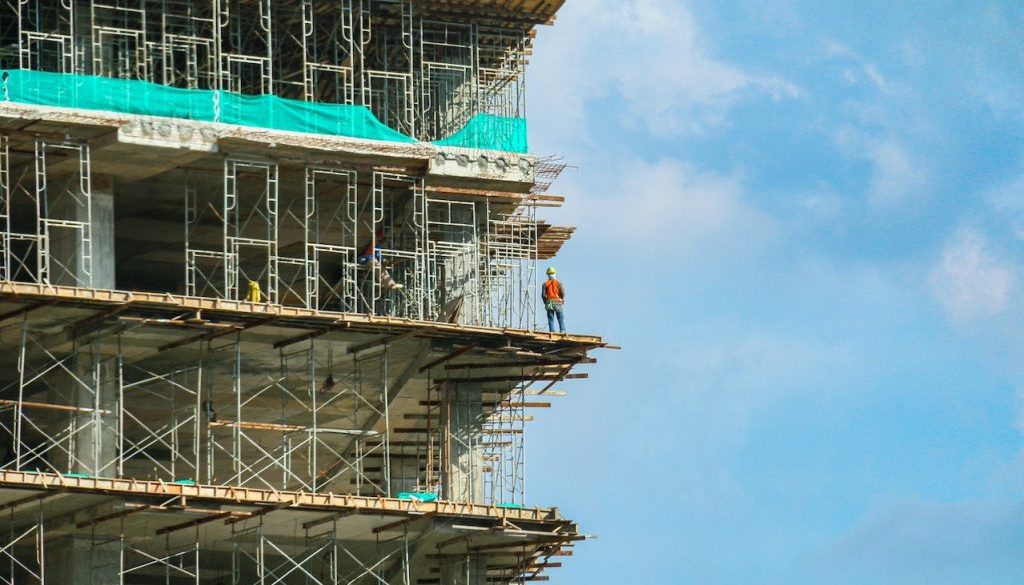In today’s environmentally-conscious world, it is increasingly crucial for construction projects to prioritise responsible waste management and disposal practices. Proper waste management not only helps to minimise the adverse effects on the environment but can also lead to cost savings, enhanced efficiency, and improved reputation for the construction firm. As the construction industry generates a significant portion of global waste, adopting proper disposal methods and reducing waste at the source is essential for moving towards a more sustainable future.
With that in mind, we’ll offer a comprehensive guide to responsible construction waste management and disposal, covering essential tips and best practices that can be implemented on-site. We will discuss various waste reduction strategies and recycling and reuse processes that can be integrated into construction projects, as well as the importance of working with a trustworthy waste management partner like Enviro Skip Hire to ensure compliant waste disposal.
Additionally, we will highlight the latest waste management policies and regulations in the United Kingdom and how these guidelines can impact your construction project. By gaining a thorough understanding of construction waste management principles and implementing them effectively, you can reduce your project’s environmental footprint, contribute to a sustainable construction industry, and achieve a higher level of corporate social responsibility.
Embrace this comprehensive guide to responsible construction waste management and disposal, and transform your construction project into a green, resource-efficient model that paves the way forward for sustainable development in the industry.
Waste Reduction Strategies for Construction Projects
Reducing waste generation at the source is a crucial aspect of responsible construction waste management. By incorporating sustainable building techniques and careful planning, construction firms can significantly reduce the amount of waste produced during a project. Here are a few essential waste reduction strategies for your consideration:
- Design for Deconstruction: Adopt a design-for-deconstruction approach when planning your project. This method involves designing structures that can be easily disassembled and reused or recycled in the future, therefore limiting waste generation during the building’s end-of-life stage.
- Material Optimisation: Aim to minimise surplus materials by ordering only what’s required for your project. Conduct precise material estimations and employ just-in-time (JIT) purchasing to avoid over-ordering of resources.
- Prefabrication: By employing prefabrication techniques, you can manufacture components off-site in a controlled environment, reducing on-site waste generation and increasing overall resource efficiency.
- Waste Segregation: Segregating waste materials on-site facilitates more straightforward and efficient recycling processes, therefore reducing the volume of waste destined for landfill.
Recycling and Reuse of Construction Waste
Recycling and reusing construction waste is a vital process within responsible waste management, as it helps prevent the depletion of natural resources and reduces the environmental impact of the construction project. Here are some common construction waste materials that can be recycled or reused:
- Concrete: Concrete waste can be crushed and reused as an aggregate material for future construction projects, reducing the need for virgin aggregates.
- Wood: Wood waste can be reprocessed into particle boards, wood chips, or mulch, providing valuable materials for landscaping or flooring projects.
- Metals: Metal waste from construction projects can be melted down and reformed into new products, thus reducing energy consumption associated with raw metal extraction.
- Plasterboard: Plasterboard waste can be repurposed into new plasterboard products, gypsum-based fertilisers, or cement manufacturing materials.
Understanding Waste Management Regulations and Policies
Compliance with waste management regulations and policies is a critical aspect of responsible construction waste management. Familiarise yourself with the latest guidelines and policies in the United Kingdom to ensure your project adheres to the stipulated disposal requirements. Some key waste management policies and regulations include:
- Waste Duty of Care: Construction firms have a legal obligation to ensure their waste is disposed of responsibly, with businesses required to dispose of waste through licensed carriers and at authorised facilities only.
- Site Waste Management Plans (SWMP): Although no longer a legal requirement in England, SWMPs have been proven effective in reducing construction waste. Implementing a voluntary SWMP can help your project reduce waste generation and improve resource efficiency.
- Resource Efficiency Action Plans (REAPs): Specific industries or sectors may be subject to REAPs, which outline waste management best practices and resource efficiency targets. Be aware of any REAPs relevant to your construction project to ensure compliance.
Benefits of Partnering with Enviro Skip Hire
Working with a reliable waste management partner like Enviro Skip Hire can help you navigate the complexities of construction waste management and disposal, ensuring a more efficient and environmentally responsible project. Benefits of partnering with Enviro Skip Hire include:
- Range of Waste Management Solutions: Enviro Skip Hire offers a wide array of waste management solutions, including skip hire, aggregates, and recycling services – ensuring comprehensive coverage of your project’s disposal needs.
- Expertise and Compliance: With significant experience in the waste management sector, Enviro Skip Hire ensures your construction project complies with relevant waste management regulations and policies.
- Commitment to Sustainability: Enviro Skip Hire maintains a strong commitment to sustainable waste disposal practices, aiming for a high percentage of waste to be recycled or recovered, thus reducing landfill waste and promoting environmental responsibility.
- Efficient and Cost-Effective Solutions: By offering efficient and cost-effective waste management solutions, Enviro Skip Hire ensures that your construction project proceeds smoothly without unnecessary waste-related delays or financial burdens.
Cost-Efficiency in Construction Waste Disposal: Saving Money while Saving the Planet
Embracing responsible construction waste management and disposal practices is essential for reducing the environmental impact of your project, contributing to sustainable development in the industry, and ensuring regulatory compliance.
By implementing waste reduction strategies, recycling and reusing waste materials, adhering to waste management policies, and partnering with cheap skip hire in Stoke-on-Trent like Enviro Skip Hire, you can elevate your project’s waste management approach to the highest level of environmental responsibility and efficiency.
Transform your construction project into an eco-friendly endeavour with responsible waste management practices, paving the way towards a greener and more sustainable future for the entire construction sector.




